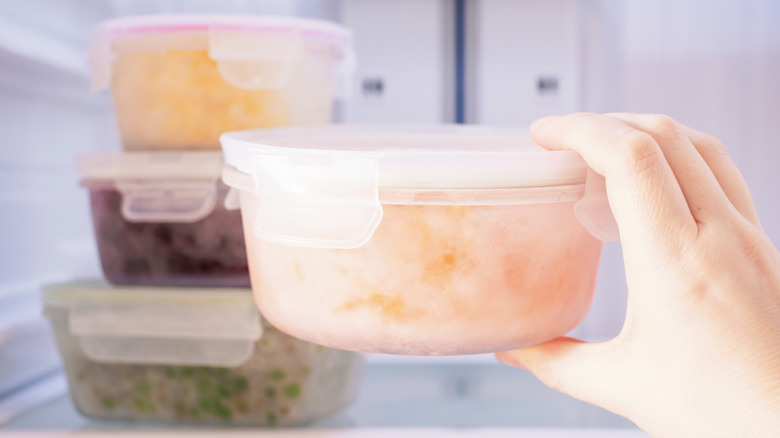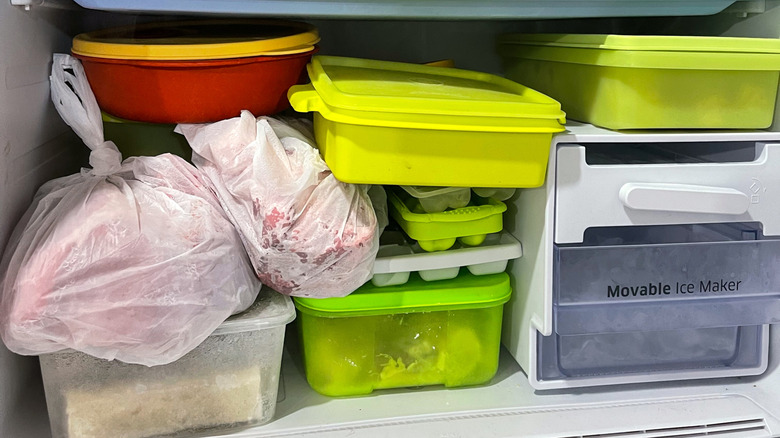The Step You Should Never Skip When Freezing Leftovers
We may receive a commission on purchases made from links.
Leftovers are a part of life, whether you go out to eat or make a meal at home. Fortunately, they ensure you have something tasty to eat later in the week, and there are many ways to repurpose them. For example, you can use leftover hot dogs to make a savory breakfast sandwich, or turn your leftover mashed potatoes into loaded mashed potato balls that are a perfect side dish or party snack. However, before you can reuse your leftovers, you have to make sure you store them correctly in the meantime. One of the best ways to store leftovers for a long time is by freezing them, but you can't just toss them in the freezer and call it a day.
When freezing leftovers, the one step many people skip is not cooling them down thoroughly before putting them away. When food isn't cooled entirely and placed in the freezer, its heat can cause other frozen items to begin thawing. This can be dangerous if the temperature rises to 40 degrees Fahrenheit or above, the danger zone for food. At this temperature, bacteria can begin multiplying more readily, potentially making the food unsafe to eat. Because of this, it is essential to ensure all leftovers are cooled before placing them in your freezer.
That said, don't just let your leftovers sit out on the counter until they cool because food shouldn't be allowed to stay at room temperature for more than two hours to mitigate bacteria growth. Instead, leftovers can be put in the refrigerator to cool before going into the freezer. For large portions of hot food, divide it into smaller portions before putting it in the fridge to speed up the cooling time.
Properly storing your leftovers after cooling is equally important
It is incredibly important to quickly cool leftovers before putting them in the freezer, but this will mean little if you don't properly store the food after. Now, there are many storage mistakes that can ruin your food, but when it comes to freezing, not picking the right containers is one of the biggest. Not only do proper containers help prevent things like freezer burn, but they can stop your food from picking up odors from the freezer that are anything but appetizing.
If you're using vessels like Gladware's Freezerware containers, you'll want to pack them to the top so there is little room for excess air to induce freezer burn. However, if you're freezing something liquid, like a soup, you'll want to leave more room because the liquid will expand as it freezes. Now, if you're using freezer bags, this same rule applies, and you'll want to make sure as much air is removed as possible. An easy way to do this is to submerge the bag in water till just below its seal. This will force excess air out.
Most leftovers can be stored in the freezer for three to four months. After that, they will technically remain okay to eat, but they will begin to dry out and lose their fresh flavor. Fortunately, with all the great ways you can repurpose leftover food, it's really easy to use them up before that happens.

